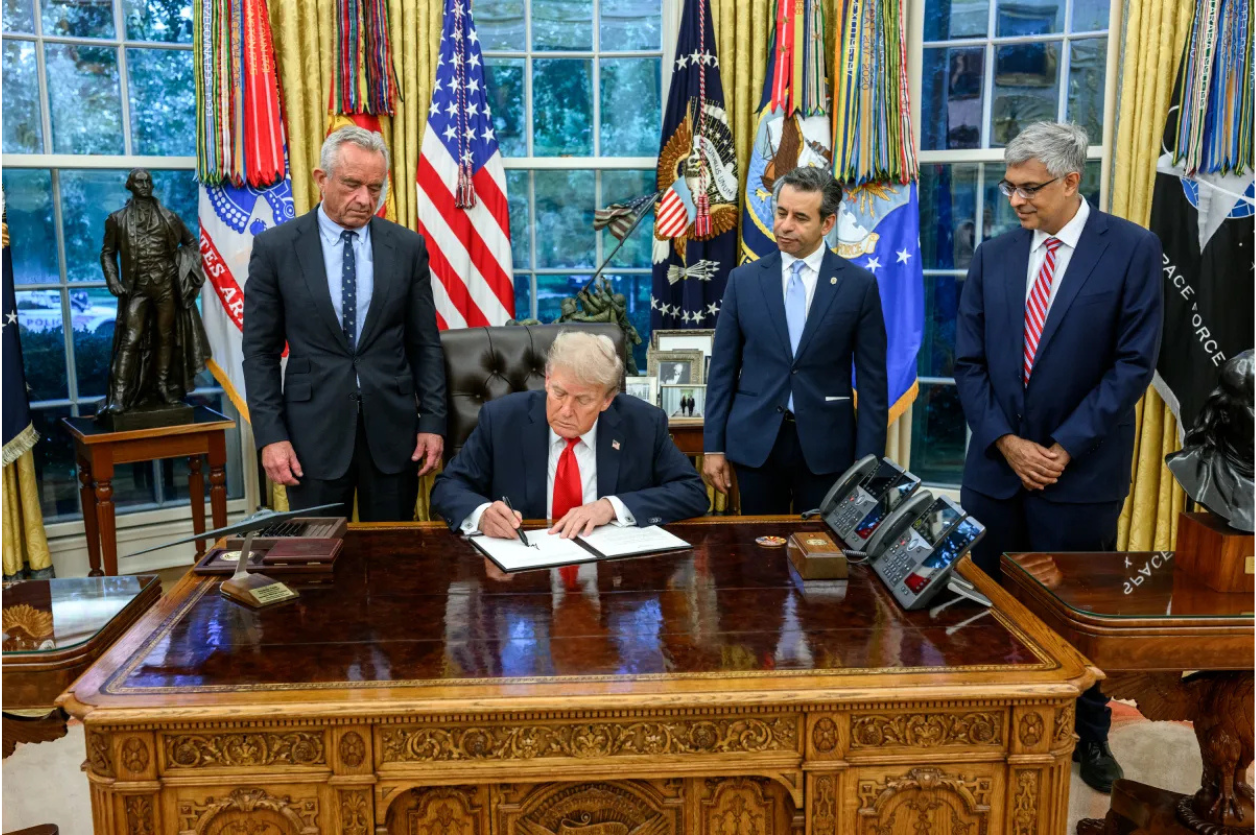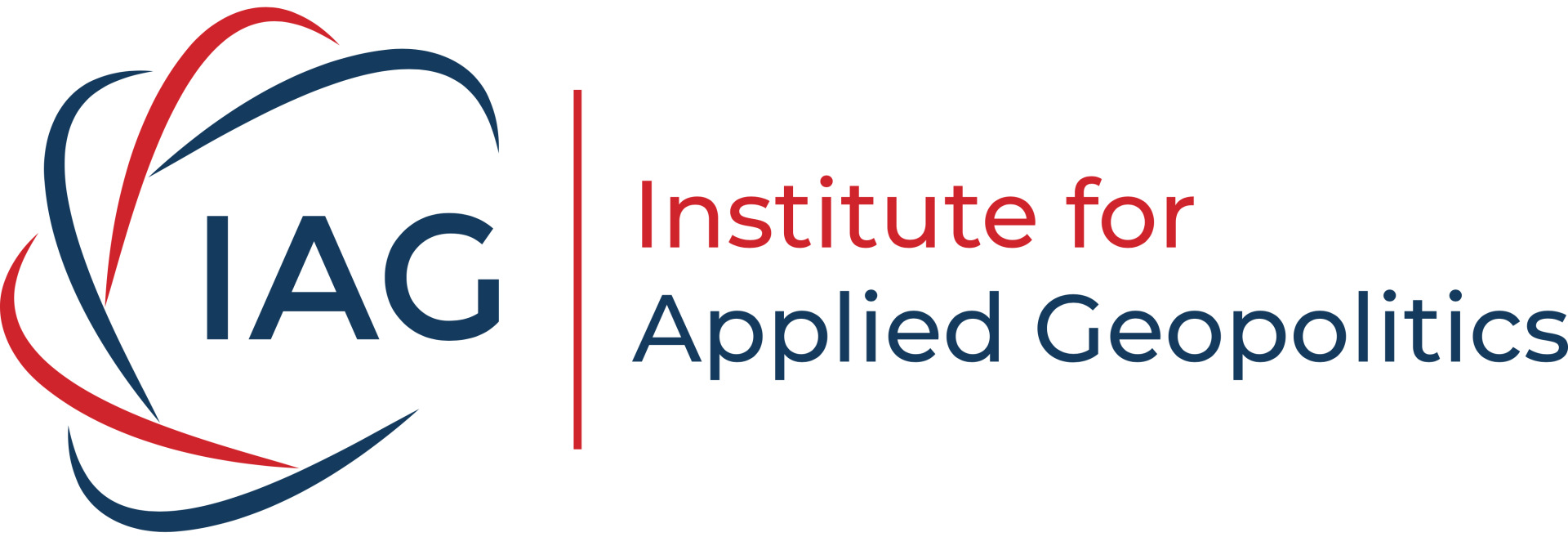U.S. Internal Politics Now Driving Foreign Policy Shifts

Photo credit: The United States White House
Intelligence Summary
In September 2025, a series of domestic political moves by U.S. President Donald Trump began to directly shape international policy and global perceptions of the United States. On September 22, Trump signed an executive order formally designating the Antifa movement as a domestic terrorist organization, citing what he described as a coordinated campaign of political violence against law enforcement and conservative figures. The order followed the assassination of conservative activist Charlie Kirk in Utah. Trump’s directive instructed federal agencies to use all available legal authorities to investigate, disrupt, and dismantle Antifa operations, including prosecuting individuals or entities that provide material support. The order accused Antifa of armed standoffs with law enforcement, organized riots, assaults on Immigration and Customs Enforcement (ICE) officers, and efforts to conceal funding sources. The designation allows federal agencies to apply terrorism statutes, expand surveillance, and pursue financial networks linked to Antifa.
Trump is expected to address the 80th United Nations General Assembly in New York, today, September 23. Since returning to office in January 2025, Trump had already withdrawn the United States from the World Health Organization, ended participation in the UN Human Rights Council, and ordered a review of U.S. membership in hundreds of intergovernmental organizations. Trump is expected to have individual meetings with UN Secretary-General António Guterres, leaders of Ukraine, Argentina, and the European Union, and hold a group meeting with officials from Qatar, Saudi Arabia, Indonesia, Turkey, Pakistan, Egypt, the UAE, and Jordan.
Trump’s foreign policy actions in recent months included ordering U.S. airstrikes on Iranian nuclear facilities in June 2025 and authorizing strikes on alleged drug-smuggling boats in the Caribbean in September, two of which originated from Venezuela and resulted in fatalities. These actions raised speculation that Trump was seeking to pressure Venezuelan President Nicolás Maduro. Critics argued that the strikes amounted to extrajudicial killings. Trump continues to pressure European allies to halt purchases of Russian oil, which he described as fueling Moscow’s war in Ukraine. Despite his campaign promise to end the war in Ukraine within 24 hours of taking office, his Alaska summit with Russian President Vladimir Putin in August failed to produce results.
At the same time, Trump’s administration introduced sweeping immigration restrictions. On September 20, he announced a $100,000 fee for H-1B visa applications, a dramatic increase from the previous $1,700–$4,000 range. The fee took effect on September 21, creating confusion among employers, universities, and foreign workers. The White House later clarified that the fee would be a one-time charge. The administration also introduced a $1 million “gold card” visa for wealthy individuals. The H-1B program, which allows U.S. companies to hire foreign workers with specialized skills, has been heavily used by Indian nationals, who accounted for 71 percent of approved visas in 2024. The new fee caused shares of Indian tech companies to fall and prompted Indian Prime Minister Narendra Modi to call for citizens to reject foreign-made goods. Indian External Affairs Minister S. Jaishankar met with U.S. Secretary of State Marco Rubio in New York on September 22 to address strained relations, while Trade Minister Piyush Goyal traveled to Washington for trade talks.
Trump’s domestic rhetoric also spilled into health policy. On September 22, he announced new guidelines warning against the use of acetaminophen (Tylenol) during pregnancy, claiming without evidence that it was linked to autism. The Food and Drug Administration (FDA) was directed to notify doctors of the alleged risk, despite scientific reviews by regulators worldwide finding no such link. The move aligned with Health Secretary Robert F. Kennedy Jr.’s long-standing campaign to challenge mainstream medical consensus on vaccines and autism.
Together, these developments illustrate how Trump’s domestic political agenda, including countering left-wing groups, restricting immigration, and promoting nationalist health narratives, is shaping U.S. foreign policy positions, trade relations, and global diplomatic engagement.
Why it Matters
The convergence of Trump’s domestic political agenda with international policy has significant implications for global stability, alliances, and perceptions of U.S. leadership. The designation of Antifa as a terrorist organization represents a domestic security measure, but its framing as part of a broader war on radical leftist groups has international resonance. By labeling a loosely organized activist network as a terrorist entity, Trump expands the scope of counterterrorism tools traditionally reserved for foreign threats. This blurs the line between domestic dissent and international terrorism, potentially setting a precedent for other governments to justify crackdowns on opposition movements under the guise of counterterrorism. For allies, this raises concerns about the politicization of security designations, while adversaries may exploit the move to highlight U.S. double standards on human rights.
Trump’s highly anticipated UN General Assembly address coincides with his domestic political actions. By withdrawing from the World Health Organization and the UN Human Rights Council, and by reviewing U.S. participation in other intergovernmental bodies, Trump signals a retreat from cooperative global governance. This weakens the institutional frameworks that underpin international law and collective security. His criticism of globalist institutions resonates with nationalist movements worldwide, but it also isolates the United States from allies who rely on multilateral mechanisms to address transnational challenges such as pandemics, climate change, and conflict resolution. Analysts note a dissonance between Trump’s calls for collective action, such as urging European countries to reduce dependency on Russian oil, and his retreat from international groups that traditionally facilitate such cooperation.
The military dimension of Trump’s policies further complicates the global landscape. His authorization of airstrikes on Iranian nuclear facilities and Venezuelan vessels demonstrates a willingness to use force unilaterally, bypassing international legal norms. These actions risk escalation with both state and non-state actors, while also raising questions about the legality of targeted killings outside declared war zones. For adversaries like Iran and Venezuela, such strikes reinforce perceptions of U.S. aggression and may prompt retaliatory measures. For allies, they create uncertainty about the predictability of U.S. military engagement and the potential for entanglement in conflicts not sanctioned by international law.
Immigration policy, particularly the imposition of a $100,000 H-1B visa fee, illustrates how domestic political priorities can disrupt global labor mobility and economic ties. The abrupt implementation of the fee has created confusion among employers and foreign workers, undermining confidence in the stability of U.S. immigration policy. For India, the largest beneficiary of the H-1B program, the move has direct economic and political consequences. It threatens the competitiveness of Indian tech firms, disrupts the career trajectories of skilled workers, and strains bilateral relations. Modi’s call for citizens to reject foreign goods reflects a nationalist response that could accelerate economic decoupling between the two countries. At a strategic level, this risks pushing India closer to alternative partners in Europe or Asia, undermining U.S. efforts to build a coalition to counterbalance China.
Trump’s unsubstantiated claims linking acetaminophen to autism highlight another dimension of domestic politics spilling into global policy. By directing the FDA to issue warnings Trump undermines the credibility of U.S. health agencies. This has international implications, as U.S. regulatory standards often influence global health policy and pharmaceutical markets. The alignment of this move with Robert F. Kennedy Jr.’s long-standing anti-vaccine activism further politicizes health policy, potentially weakening global cooperation on public health initiatives at a time when emerging technologies and pandemics demand coordinated responses.
Finally, there are implications of Trump’s foreign policy style, which is commonly characterized by a pattern of bold initiatives followed by retreats to conventional approaches when initial efforts fail. This creates volatility in international relations, as allies and adversaries struggle to anticipate U.S. actions. The Alaska summit with Putin, which did not result in an end to the conflict in Ukraine, exemplifies this dynamic. While Trump’s unpredictability can sometimes generate leverage, it more often undermines trust and forces allies to hedge against U.S. disengagement or unilateralism. The result is a weakening of strategic deterrence and a fragmentation of alliances.
Trump’s domestic political moves are not confined to the U.S. arena but are reshaping global diplomacy, security, and economic relations. By intertwining nationalist rhetoric, unilateral military actions, restrictive immigration policies, and politicized health directives, the administration is redefining the role of the United States in the international system. The long-term consequence may be a diminished capacity for the U.S. to lead collective responses to global challenges, as allies question its reliability and adversaries exploit its internal divisions.
Key Actors
- United States
- India
- European Union
- Russia
- Iran
- Venezuela
- United Nations

